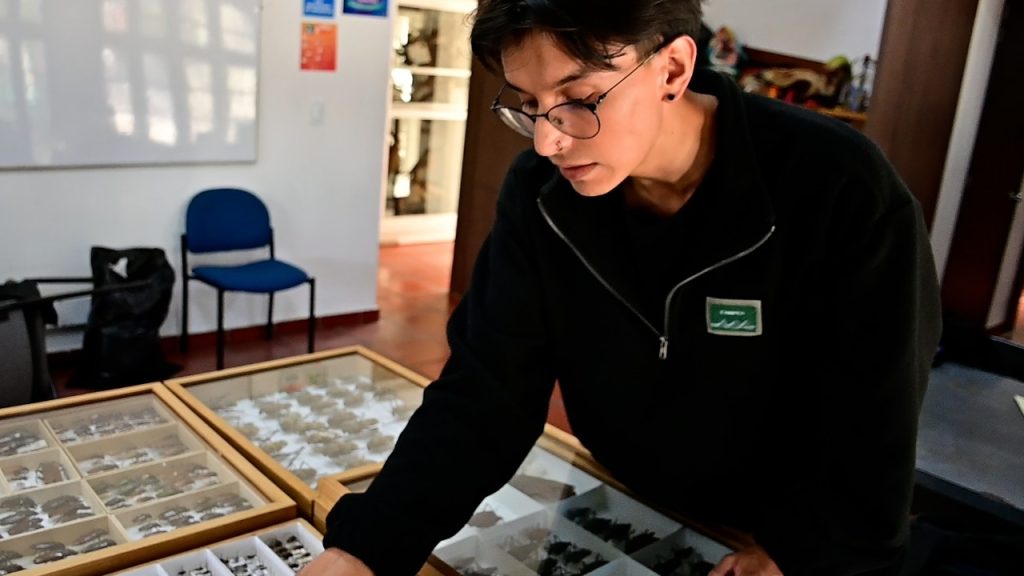Angelo Avila, a Biology graduate from the Universidad Pedagógica Nacional, has made the Natural History Museum of our Teacher Training Institute his favorite place for research and training, studying different processes in the living colonies and curating the entomological collection. “There, part of the passion for insects that I already had as a child has been strengthened, and now from a more academic and organized perspective, thanks to the different professors and university bodies,” Avila explained.
His love for teaching is an inheritance from his mother and aunt, as well as other family members who, as teachers, in some cases from UPN, created an environment that has always been permeated by pedagogy and the need to influence others through the dissemination of knowledge, in his case related to science and biology.
He began to discover his attraction to insects and deepened his knowledge of long antenna beetles. He systematized those living in the cloud forest of the Chicaque Natural Park. “I managed to record five new species and 204 new departmental records, in addition to 15 new species records for Colombia. Thanks to these and other results, I was awarded a laureate distinction for my thesis,” he said.
Later, he received a grant from the International Conservation Fund of Canada to travel to the Amazon Basin of Peru, where he spent six months as a research assistant on various insect genomics projects, especially on coprophagous and long antennae beetles. He worked on ecological, ethological, and taxonomic aspects of these projects, and produced other interesting results for this South American country.
Thanks to the training he received, he has always had the pedagogical dimension in mind, because after conducting certain research, he was concerned not to leave the results on paper, but to transform them into different elements and materials for the knowledge of the public. “The satisfaction comes from the pedagogical question, from being in contact with different people at different educational levels and talking about how wonderful biology can be, expressing the love for science, but also for teaching, for the passion of discovery,” says Angelo.
Later, he had the opportunity to develop an educational internship at the Alexander von Humboldt Research Institute for Biological Resources, which resulted in the creation of a booklet that teaches how to fill out a field notebook for those who explore nature and need to systematically record their findings.
In the short term, his dream is to become a university professor to continue to highlight the natural riches of our country from the classroom, so he wants to pursue a postgraduate degree and continue to draft research articles to open doors to achieve this goal.
“I am a son of this house, of the Natural History Museum, which has made so many people interested in insects and has contributed to Colombia and its biodiversity,” Angelo concluded.
